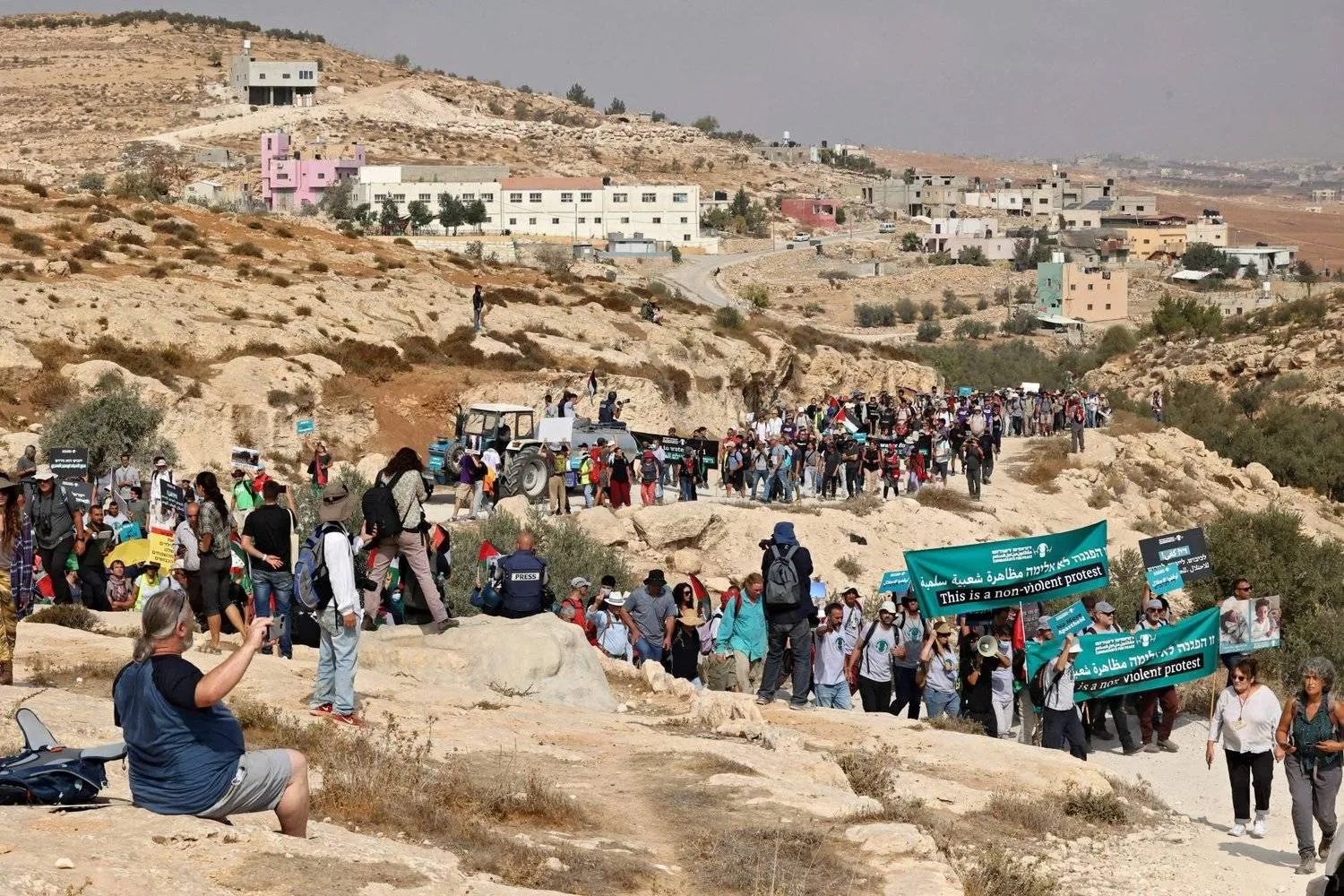Palestinian Prime Minister Mohammad Shtayyeh said on Monday that the “apartheid regime” in Israel has created a broken Palestinian legal, administrative and economic system that requires international intervention.
Speaking at the start of a weekly cabinet meeting held in Ramallah, Shtayyeh said the world should take a clear stand and the necessary steps to stop Israel’s crimes of apartheid against the Palestinian people.
The PM accused Israel of enacting several laws that serve its “racist regime”, whether it is the nation-state law or otherwise.
“This Israeli government espouses the doctrine of killing, burning, erasure and genocide,” Shtayyeh affirmed.
He highlighted the discrimination, giving the example of the distribution of water between Palestinians and Israelis. He revealed that a Palestinian receives 72 liters per day compared to 430 to one Israeli.
He also cited the denial of construction on Palestinian land, the segregation barrier, the siege on Gaza, policies in occupied East Jerusalem, and ban on family unification for Palestinians.
Shtayyeh’s comments came shortly after Israel's National Security Minister Itamar Ben-Gvir declared: “The right of me, my wife and kids to travel around the West Bank is more important than that of the Arabs.”
Meanwhile, a recent report published by Israel’s Haaretz showed that Palestinians barely get enough water to bathe their children and wash their clothes, while in sharp contrast, neighboring Jewish settlements look like an oasis.
“Wildflowers burst through the soil. Farmed fish swim in neat rows of ponds. Children splash in community pools,” the newspaper wrote.
Across the West Bank, it said water troubles have stalked Palestinian towns and cities since interim peace accords of the 1990s gave Israel control over 80 percent of the West Bank’s water reserves — and most other aspects of Palestinian life.
Palestinians have protested in the West Bank over the water shortages that have, in some areas, stretched for around a month.
“This is the hardest summer we’ve had in nine years,” said Palestinian Water Minister Mazen Ghunaim.
The Minister accused Israel’s national water company of reducing water supplies to the Palestinian cities of Bethlehem and Hebron by 25 percent in the past nine weeks.
Ghunaim claimed the recent water cuts were a “political problem” under Prime Minister Benjamin Netanyahu’s ultranationalist government, which has taken a particularly hard line against the Palestinians. “If we were settlers, they would solve this problem instantly,” he said.
The 500,000 Jewish settlers who live in the West Bank are connected to the Israeli water grid through a sophisticated network that provides water continuously, compared to more than three million Palestinians who have only sporadic access to municipal water.









